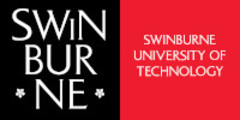Electrical and Electronic Engineering combines the fields of mathematics, science and technology to design, implement, analyze and manufacture electrical and electronic systems and devices. From the global positioning system that can continuously provide the location of a vehicle to the giant electric power generators, electrical and electronics engineers span a wide range of technologies. The program develops students’ abilities to analyse, identify, formulate and generate specific solutions in the broad field of electrical and electronic engineering. You will become capable to apply your skills and understanding in the design, construction, operation and maintenance of electronic systems and electrical energy infrastructure, or use the course as a pathway into research or further learning.
Graduates are eligible for registration under Electrical branch with Board of Engineers Malaysia (BEM).
Course educational objectives
The following course educational objectives define the achievements of Swinburne graduates in their professional engineering career a few years after graduation.
-
CEO1 Professionalism: Graduates establish themselves as practicing professionals in Electrical and Electronic Engineering and related fields.
-
CEO2 Continuous Development: Graduates engage in continuous pursuit of knowledge and development of competencies.
-
CEO3 Social Involvement: Graduates contribute to sustainable development and well-being of society.
Course learning outcomes
Students who successfully complete this course will be able to:
- apply coherent and advanced knowledge of the chosen major in engineering in diverse contexts and applications using critical thinking and judgment
- apply knowledge of research principles and methods to plan and execute a piece of research with some independence, as preparation for research higher degrees
- apply problem solving, design and decision-making methodologies to identify and provide innovative solutions to complex problems with intellectual independence
- apply abstraction, mathematics and engineering fundamentals to the analysis, design and operation of a model, using appropriate engineering methods and tools
- communicate proficiently in professional practice to a variety of audiences, function as an effective member or leader of a diverse team, and use the basic tools and practices of project management within project work
- demonstrate professionalism, integrity, ethical conduct, professional accountability and an awareness of professional engineering practice in a global and sustainable context
- reflect on and take responsibility for their own learning and self-management processes, and manage their own time and processes effectively by regularly reviewing of personal performance as a means of managing continuing professional development and lifelong learning.
At the completion of the Bachelor of Engineering (Electrical and Electronic) (Honours) course, graduates should be able to demonstrate the attainment of the following Electrical and Electronic Swinburne Engineering Competencies, required for external professional recognition:
-
K1 Basic Science: Proficiently applies concepts, theories and techniques of the relevant natural and physical sciences.
-
K2 Maths and IT as Tools: Proficiently uses relevant mathematics and computer and information science concepts as tools in complex engineering activities.
-
K3 Discipline Specific: Proficiently applies advanced technical knowledge of Electrical and Electronic Engineering within that context
-
K4 Emerging Disciplinary Trends: Proficiently applies research principles and methods on current or emerging complex problems of Electrical and Electronic Engineering.
-
K5 Practice Context: Discerns and appreciates the societal, environmental and other contextual factors affecting professional engineering practice.
-
K6 Professional Practice: Appreciates the principles of professional engineering practice in a sustainable context.
-
S1 Engineering Methods: Applies engineering methods in practical applications and complex engineering problems.
-
S2 Problem Solving: Systematically uses current or emerging knowledge and research methods to undertake independent research in solving complex engineering problems and as preparation for research higher degrees.
-
S3 Design: Systematically uses engineering methods in designing solutions to complex engineering problems.
-
S4 Project Management: Systematically uses engineering methods in conducting and managing project work including finance.
-
A1 Ethics: Values the need for, and demonstrates, ethical conduct and professional accountability.
-
A2 Communication: Demonstrates effective communication to professional and wider audiences including in complex engineering activities.
-
A3 Entrepreneurial: Appreciates entrepreneurial approaches to engineering practice.
-
A4 Information Management: Demonstrates seeking, using, assessing and managing information.
-
A5 Professional Self: Demonstrates professionalism and life-long learning.
-
A6 Management of Self: Demonstrates self-management processes.
-
A7 Teamwork: Demonstrates effective team membership and team leadership.
Career opportunities
Graduates can take up careers in a wide spectrum of industries, including automotive, robotics, aerospace, power industry, electronic appliances, manufacturing, and industrial research. Contributions can be made to these industries in a variety of roles including design engineer, project planner, product designer and project manager.
Professional recognition
Graduates are eligible to register as Graduate Engineers with Board of Engineers Malaysia (BEM) and to apply for graduate membership with Engineers Australia (EA).



